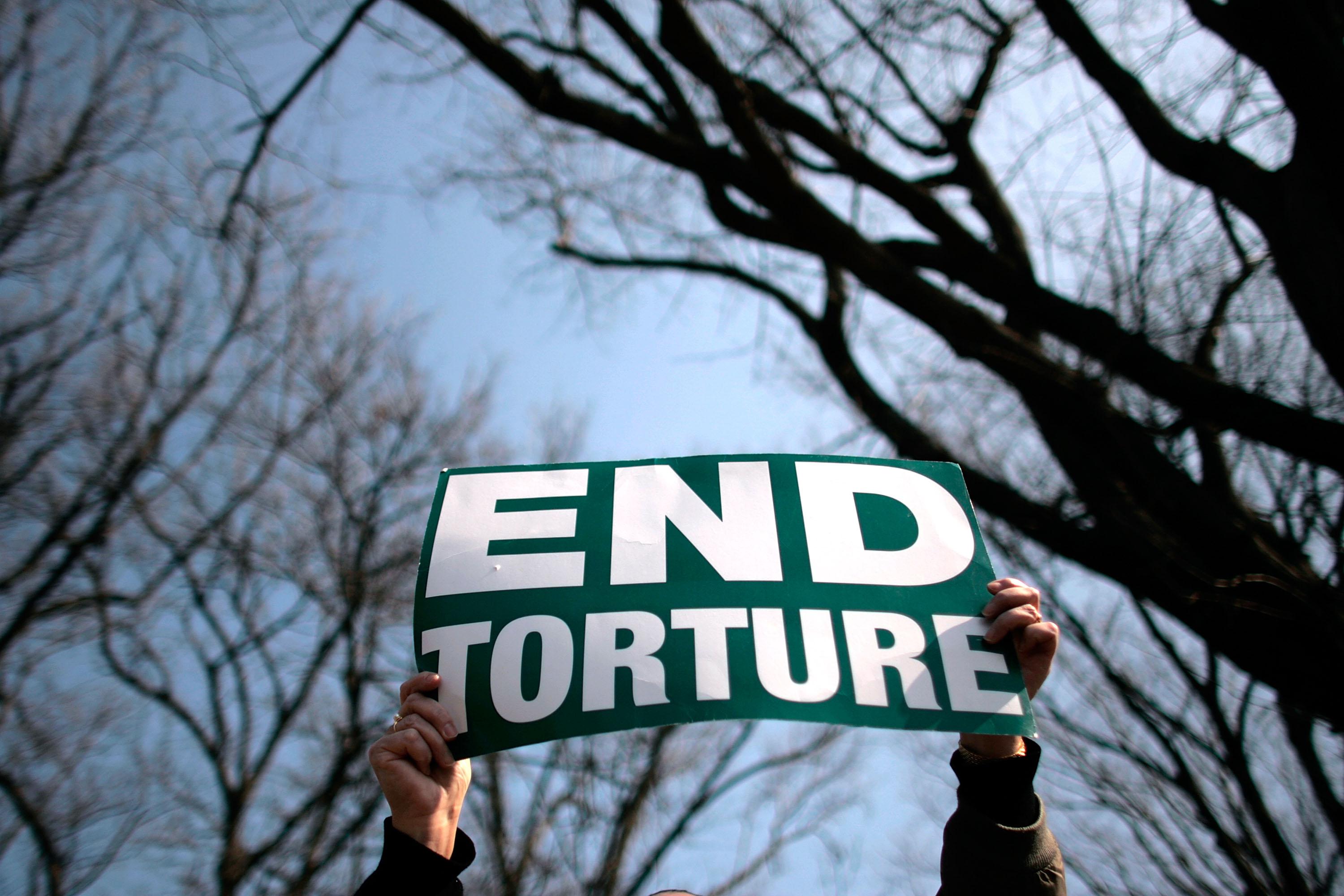Six years after Barack Obama was elected, pledging to “make sure that we don’t torture” as “part and parcel of an effort to regain America’s moral stature in the world,” the U.S. still isn’t in full compliance with the international convention against torture. That’s according to a U.N. committee, citing both ongoing issues surrounding U.S. treatment of terrorism detainees and concerns about civilian law enforcement practices that are particularly salient given the recent events in Ferguson, Missouri.
The report is the U.N. Committee Against Torture’s first review of the U.S. since 2006. There was controversy in the lead-up to the U.S. testimony to the Geneva-based committee about how expansively the Obama administration would interpret the treaty, which the Bush administration had controversially argued did not apply to the U.S. military or to CIA prisons overseas. In the end, officials told the committee that the treaty’s prohibitions on torture apply “wherever the United States exercises governmental authority,” a definition that includes military facilities but not necessarily the kind of “black site” prisons the CIA operated on the sovereign territory of other nations during the Bush years. U.S. officials argue that this doesn’t mean the there’s wiggle room on torture, which in any case is prohibited under laws passed by Congress. Rather, they’re just concerned about setting a precedent for the scope of other treaties with similar jurisdictional language.
The committee didn’t buy it. The U.N. group was “dismayed” by the U.S. position, which, in the future, could “permit interpretations incompatible with the absolute prohibition of torture and ill-treatment.” While the U.S. is no longer using Bush-era techniques like waterboarding on detainees, the committee lamented “the ongoing failure to fully investigate allegations of torture and ill-treatment” as part of the war on terror, as well as the failure to provide more information about the now-shuttered network of secret interrogation facilities.
The committee also expressed concern about “physical separation,” an interrogation technique permitted by the U.S. Army Field Manual, which involves preventing a prisoner from communicating with other detainees. The manual stresses that this “must not preclude the detainee getting four hours of continuous sleep every 24 hours.” Some members of the committee argued that this constitutes sleep deprivation, though the testifying U.S. officials argued that four hours of sleep should be read as an absolute minimum rather than a recommendation.
The report also raps the U.S. for continuing to hold detainees without charge at Guantanamo. Just last week, the U.S. finally released Saudi detainee Muhammad Zahrani, the “forever prisoner,” who had been held without charge since 2002. That leaves 142 people still in custody at the facility.
While U.S. compliance with the treaty is usually discussed in terms of counterterrorism practices, a large part of the report concerns civilian law enforcement issues. Those include prison rape, the treatment of asylum seekers, capital punishment methods that cause prolonged suffering, life sentences for juvenile offenders, solitary confinement in prisons, as well as “numerous reports of police brutality and excessive use of force by law enforcement officials, in particular against persons belonging to certain racial and ethnic groups, immigrants and LGBTI individuals, racial profiling by police and immigration offices, and growing militarization of policing activities.”
Last month, the parents of Michael Brown traveled to Geneva to testify before the committee. While the report doesn’t mention Brown’s case specifically, it does express “deep concern at the frequent and recurrent police shootings or fatal pursuits of unarmed black individuals” and the “alleged difficulties to hold police officers and their employers accountable for abuses.”
How much will this report matter? International concerns about U.S. law enforcement have had some real world effects. For instance, many European drug companies are prohibited by law from shipping chemicals used in lethal injections to the United States, a policy that may perversely have led to several painful, botched executions. A number of countries, including Mexico and France, also won’t extradite murder suspects to the United States unless they receive assurances that they won’t receive the death penalty.
U.S. lawmakers have made it abundantly clear that they’re not that concerned about how other countries view our human rights practices, and it’s not ridiculous to say we shouldn’t worry about being judged according to the standards of a torture treaty to which Uzbekistan and Sudan are signatories. But if you’re making a case for “moral stature,” as President-elect Obama once put it, America’s treatment of prisoners isn’t the place to start.
